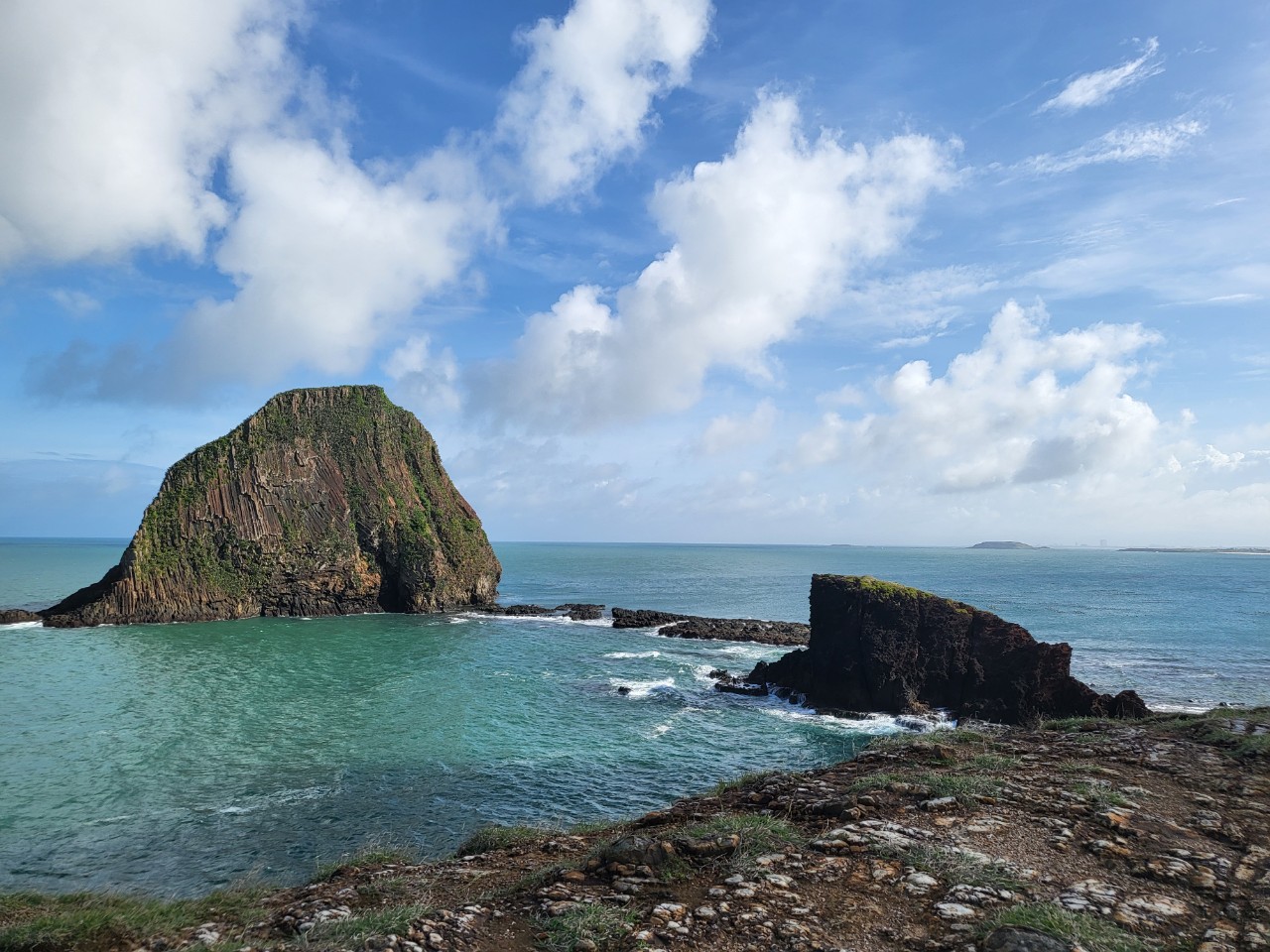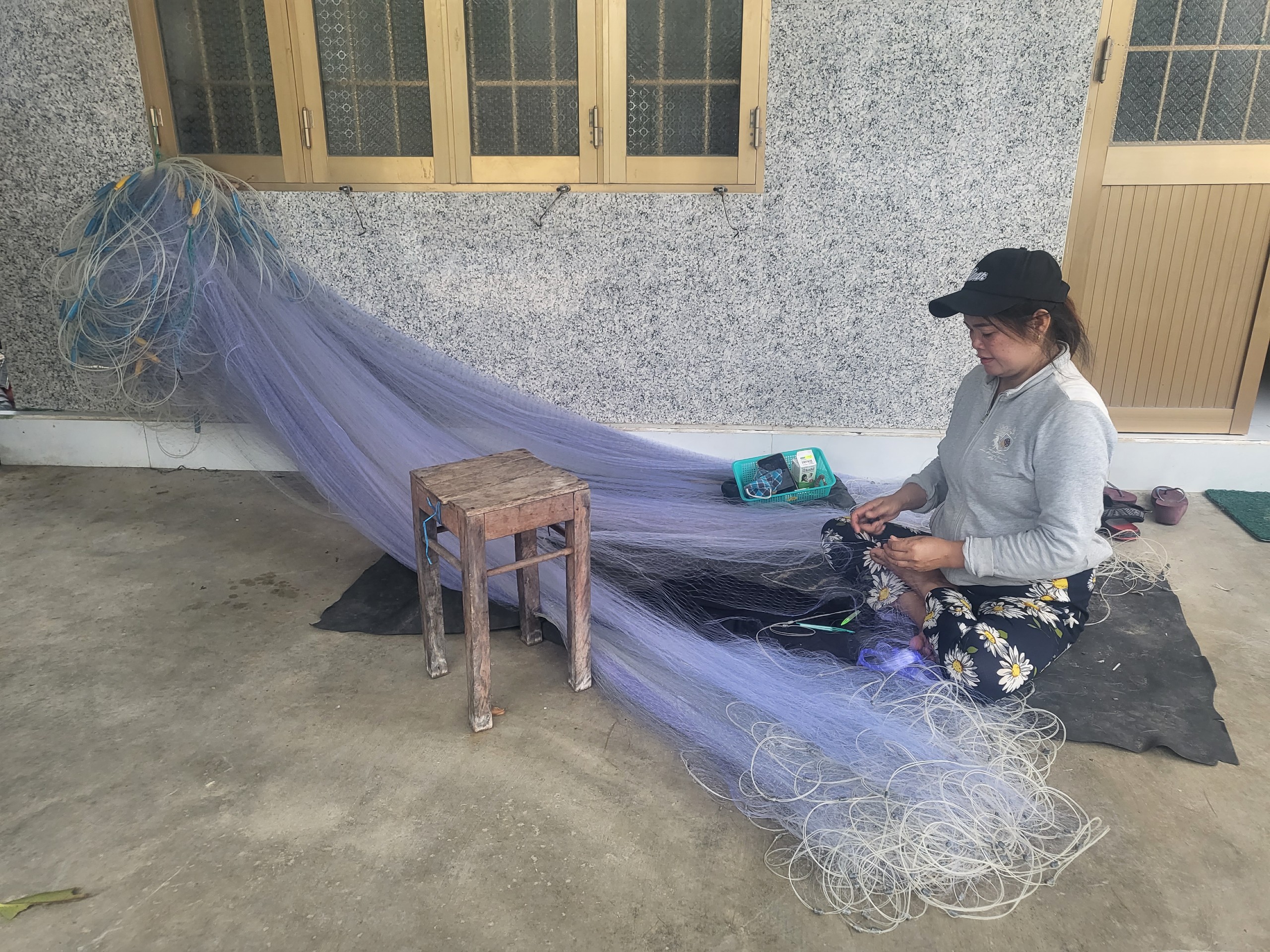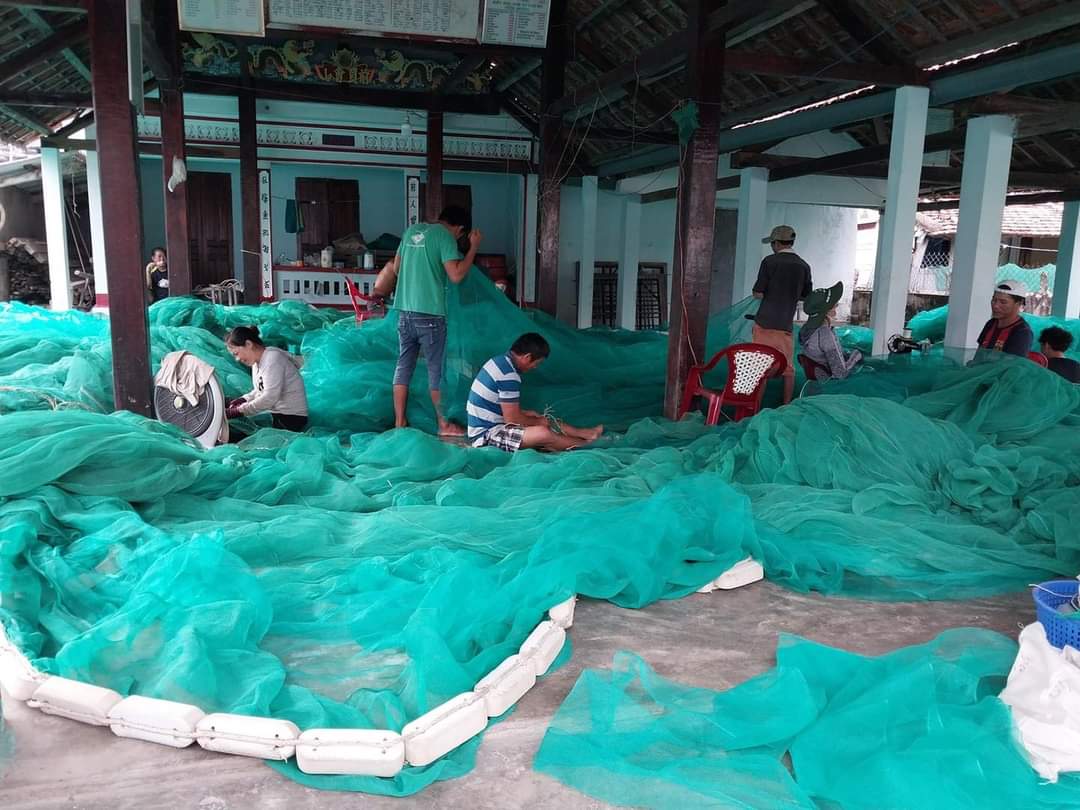Blog by Bui Hoa Binh, UNDP Program Analyst in Climate Change and Environment
Community-based ecotourism: a new livelihood and hope for islanders
May 18, 2023

Hon Yen Island
Hon Yen (Swiftlet Island) is in Phu Yen province, on the southern coast of Viet Nam. The island is famous for its beauty. With 27 hectares of coral reefs the island itself is surrounded by several other islands bursting with biodiversity, a diverse landscape of hills covered by green grass, cacti, a rock island of seaweed, blue water and white sandy beaches, and lush rice fields inhabited by flocks of white storks and other birds. The island is rapidly emerging as a popular tourist destination, with the potential to attract a high number of visitors to Phu Yen province. In 2022, the number of visitors to Phu Yen reached 2.2 million and is projected to continue to rise.
Hon Yen is home to 22 species of coral, which in turn provide habitat for 60 species of fish. Sadly, a recent survey has revealed that the coral reef is degrading as a result of environmental pollution, unsustainable fishing, tourism, and other exploitation activities. The implications of this degradation are significant. If the coral disappears, Hon Yen is no longer the Hon Yen that we know and love.
The closest island community of An Hoa Hai has a population of more than 3,000 people with 1,200 household, which relies mostly on fishing and farming, but is also a draw for tourists.
Traditional practice
Ms. Lun’s family has a longstanding tradition of making traditional fishing nets, spanning several generations. Her father, who has been engaged in this craft since the age of 14, now at 74 years old, possesses a wealth of knowledge and expertise in the art of net-making. But the profession is on the decline, with only a few families continuing the tradition of making these nets.

Fishing net making
Interestingly, this decline has had an unintended consequence - it has turned net-making into a unique tourism activity. Visitors now have the opportunity to engage in firsthand experiences, witnessing the intricate process of net-making and gaining a deeper understanding of the cultural heritage associated with it.
Moreover, the profession of net-making plays a role in promoting a circular economy. By showcasing the principles of reduce – reuse - recycle, the net-makers contribute to a sustainable and environmentally friendly approach. This not only reduces waste but also highlights the importance of utilizing available resources responsibly. Ms. Lun's family and others involved in this profession play a valuable role in showcasing the rich heritage, promoting sustainable practices, and offering unique experiences to visitors. Their commitment to preserving traditional craftsmanship and embracing the principles of circular economy demonstrates the potential for traditional industries to adapt and thrive in a changing world.

Fishing net making
New economic practice
Ms. Thuong, a mother of a 13-year-old son, is the owner of a bird nest facility. Her business involves buying rough bird nests from 29 bird houses to processing them into finished products - a valuable food supplement with rich nutritional content, including essential amino acids, proteins, minerals, and trace elements. This endeavor not only benefits Ms. Thuong but also has a positive impact on the local community, especially women, as it creates new job opportunities and income sources.
Furthermore, although it’s a new economic activity, Ms. Thuong’s bird nest facility has the potential to evolve into an eco-tourism model by incorporating sustainable practices, such as responsible sourcing of bird nests, adopting environmentally friendly production methods, and utilizing non-plastic packaging. The uniqueness of bird nests and their production process can attract tourists who seek authentic and immersive experiences. By integrating sustainable practices into her business, Ms. Thuong's bird nest facility sets an example of how economic activities can be both economically viable and environmentally responsible.

Bird nest making
How’s the community being organized?
The above mentioned are just two examples of how the local community is exploring new ways for economic development and generating higher income. They have established four groups of agriculture, service, tradition, and conservation. The agriculture group consists of households and individuals who work on safe vegetables, fruit gardens, and paddy rice. The service group consists of households and individuals who work on bird nests, noodle making, food catering/restaurant, and homestay. The tradition group consists of those making fish nets, fish sauce, fishing, and aquaculture. The conservation group is responsible for coral reef conservation, ensuring tourists do not step on coral reefs, and patrolling to prevent night fishing in the coral reef. Four groups with different objectives but have one joint goal of ensuring sustainable livelihoods while preserving Hon Yen’s beauty.
What is the desired future of Hon Yen?
Local people want their daily activities to contribute towards protecting and conserving the island. To help the local community in Hon Yen realize their desire for better life and nature conservation, UNDP’s Biodiversity Finance Initiative (BIOFIN) is helping local people identify their own problems and find ways out.
What are the next steps?
However, easier said than done. To protect and conserve Hon Yen, money is needed to fund such activities as awareness raising, patrolling, and coral planting. It is still a long way toward an independent and sustainable financing source for coral reef conservation in the island. Fortunately, the whole community has a joint determination, so BIOFIN is working closely with the local communities as agents of change. And there has seen initial sparkling lights. In the coming months, various models that incorporate traditional and service-based tourism activities will be piloted. These models aim to generate revenues, which will then contribute to the financial resources for conservation activities. Financial management training will be provided for the local communities to sustain their economic-conservation model. We believe that the local communities will better protect and conserve Hon Yen with all their heart and souls and in return, the beautiful island will cherish their life.

 Locations
Locations



